Even Javier Milei was surprised by his unexpected victory in Argentina’s national midterm elections, as he admitted in an interview the following day. Beforehand, it felt as if he was down and out, with many predicting he was finished politically as the peso-dollar exchange rate continued to climb higher, even with the full support of the US government. What was particularly shocking last weekend was the victory in Buenos Aires Province – dubbed the “mother of all battles” – which came after Diego Santilli had to come off the bench to replace José Luis Espert who, it was shown, had received financing from a suspected drug-trafficker and forced to resign his candidacy. Governor Axel Kicillof had achieved a crushing win over Milei’s candidates just two months earlier in local provincial elections and the expectation was the libertarians would eat into that lead, but still lose by several percentage points. Instead, winning Buenos Aires Province allowed Milei to consolidate a national victory that once again hands him a popular mandate to deliver on his campaign promise to “make Argentina great again.” The ball is once again in their court.
As the dust settled, analysts sought to identify the underlying forces behind the solid victory. Milei’s La Libertad Avanza coalition had only secured a single victory in local elections this year (Buenos Aires City) and suffered a beatdown in Buenos Aires Province. It came into the election in the midst of a series of mini-financial-crises where its major claim– dexterity on the economic front – was seriously in question. A series of corruption accusations, involving Espert and Presidential Chief-of-Staff Karina Milei, rocked their standing in opinion polls as Milei’s credibility as an anti-caste crusader was put in doubt. The Cabinet completely lost its form too, with two ministers resigning before the election (Foreign Minister Gerardo Werthein and Justice Minister Mariano Cúneo Libarona), forcing the president to pre-announce a deep reshuffling of his team. Ultimately, he was forced to go to US President Donald Trump for an emergency bailout orchestrated by US Treasury Secretary Scott Bessent that to many was read as a bad omen going forward.
The first hypothesis put on the table was the government’s own: fear of a return of Kirchnerism, particularly given that the Milei administration seemed to be unravelling ahead of the election. This galvanised the anti-Peronist sentiment of a large portion of society. The ghost of Cristina Fernández de Kirchner returning to power, together with the spectre of Kicillof, had been dubbed the “riesgo kuka” by Milei and Economy Minister Luis ‘Toto’ Caputo, who suggested market turbulence was a consequence of the electoral result. (“Kuka” is slang for cockroach and has become the main derogatory term used to refer to Kirchnerites by their antagonists). This line of thought was also expressed by International Monetary Fund chief Kristalina Georgieva when she called for Argentines to “stay the course” and vote for Milei. It’s also in line with Bessent’s public statements, all of which follow Trump’s lead, when he essentially extorted the Argentine electorate by threatening to withdraw financial support in the face of a negative electoral outcome.
From Fernández de Kirchner’s perspective, Milei’s victory was sparked by Kicillof’s decision to de-couple the local and national elections. Local mayors and municipal leaders were seen as being instrumental in Peronism’s decisive victory in September, and that force and ground game was lacking in October. Having skin in the game, the mayors had previously mobilised their electorates and made sure they knew their face. If the election had been held the same day, Cristina suggests, Peronist candidates in the national midterms would’ve benefitted from that. Kicillof rejects the accusation, indicating that they had a decent performance in the national midterms and that without splitting the electoral calendar, Peronism would’ve suffered twin defeats instead of securing at least one win. But these are counterfactuals.
Another argument strikes at the heart of the civil war within Milei’s “iron triangle” involving his sister and controversial political strategist, Santiago Caputo. The pre-electoral chaos increasingly put Karina and her political lieutenants — Lower House Speaker Martín Menem and top advisor Eduardo ‘Lule’ Menem, together with handler Sebastián Pareja — under the spotlight. That group had argued for pursuing a “purist” strategy, by which La Libertad Avanza needed its own representation in every province. Allies would have to compete within the party structure, as happened with Mauricio Macri’s PRO in Buenos Aires Province. “Caputito” had been excluded from the core group of decision-makers as he sought to impose a strategy of local partners in order to benefit from their political structures. As traditional campaigning found Milei facing empty venues and small crowds, while his government was under constant assault, Caputo tried to position himself as the leader’s saviour, including through his contacts with US conservatives with access to Donald Trump’s inner circle. He reportedly organised the contentious concert in Movistar Arena where the campaign was re-launched by the President himself, rocking out on stage. Mocked internationally, it was well received by his core followers. The freelance political analyst was using his digital troll army to indicate he had been instrumental in securing US financial support to the detriment of Werthein, the sitting foreign minister. His next victim was Cabinet Chief Guillermo Francos, as stories emerged in the press about Caputo potentially formalising his real power through a role in the Cabinet.
In his victory speech, Milei said the iron triangle remains strong, meaning he reaffirms both Karina and Santiago’s role. But the nationwide victory does blow wind into Karina’s political sails, even if Caputo’s hand in the final stretch of the campaign may have helped turn the tide. And while the Cabinet could continue to be rocked, it doesn’t seem like Francos has an expiration date.
The lacklustre performance of the Provincias Unidas banner representing the traditional failure of centrist coalitions in Argentina could be another factor in the explanation. The expectation that local governors would be able to leverage their local structures to secure a strong position in next year’s legislature fell extremely short. In Córdoba, former governor and presidential candidate Juan Schiaretti was defeated by a relatively unknown libertarian, in similar fashion to Santa Fe Governor Maximiliano Pullaro’s lieutenant-governor. In Chubut, Governor Ignacio Torres’ candidate came in third. In Jujuy and in Santa Cruz, Governors Carlos Sadir and Claudio Vidal also lost, while Corrientes’ Gustavo Valdés was the only one who secured a (tight) win.
At the end of the day, the actual result was secondary given that the Casa Rosada will need to seek circumstantial allies in order to pursue its reform agenda. Milei and his team know that the IMF and the White House are scrutinising his moves as they await a structural reforms package that includes tax, pension, and labour reforms. These will require heavy lifting in terms of negotiation and consensus building, which hasn’t exactly been a house specialty so to speak. Milei counts on a financial backstop from none other than the US government and the predisposition of a majority of Argentine society to pursue a balanced budget while reforming the economy. Not that it’s an easy task given his three previous predecessors tried and failed at creating broader alliances that included other political parties and provincial governors.
Milei has acknowledged this in his victory speech and successive public appearances. He met with 18 of the 23 provincial governors Thursday in order to garner support for his budget bill. While that is an encouraging sign, the fact that he excluded four governors close to Kirchnerism is a red flag, together with his insistence that the economic model is flawless.
Will Milei take advantage of the opportunity he has been granted in order to pursue a constructive political and economic agenda for Argentina? Or will he use his newfound power to double down on his plan with no corrections, intensifying certain autocratic tendencies? The current make-up of Congress suggests he should bet on dialogue, his previous actions indicate the opposite. Argentines have grown accustomed to being disappointed by their political class.






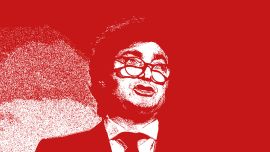






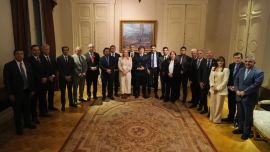
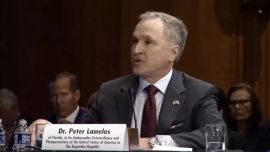




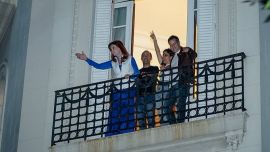
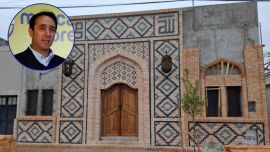


Comments